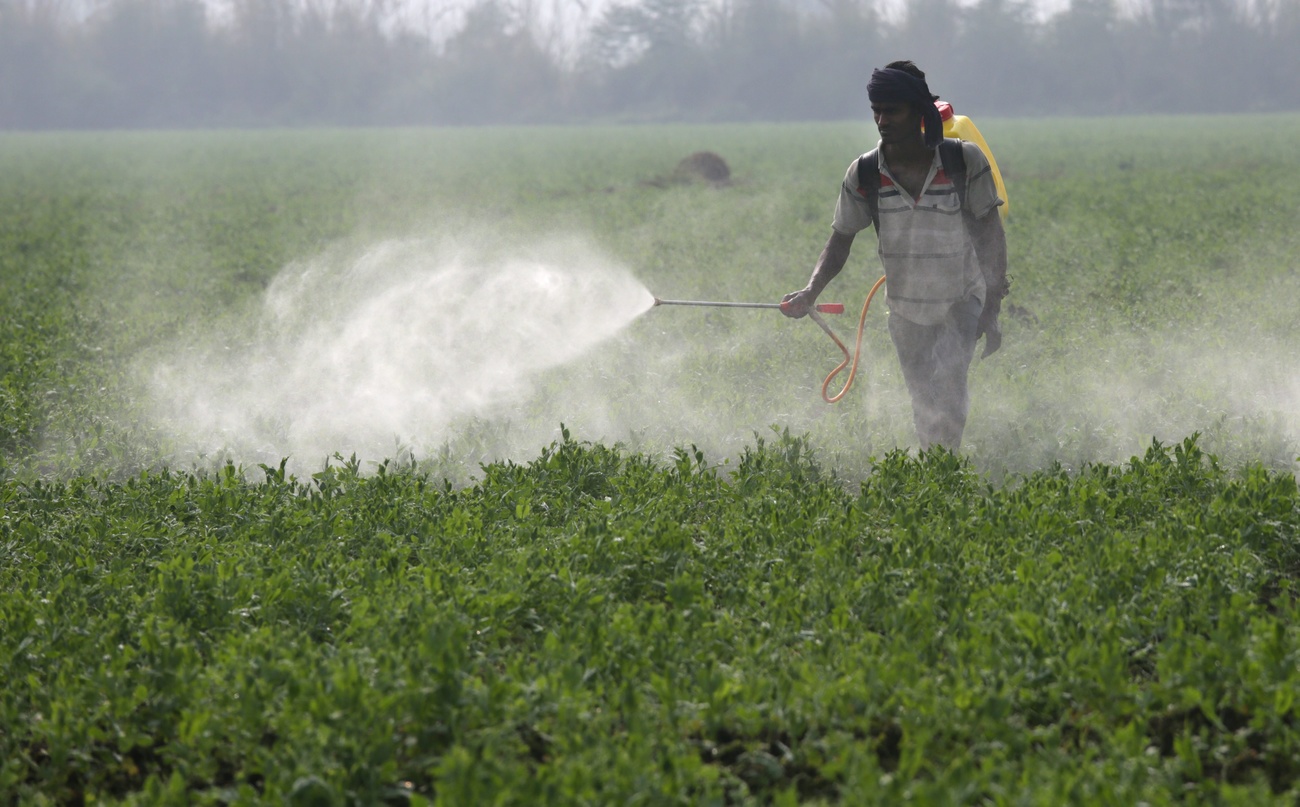
Swiss ban export of highly dangerous pesticides

Starting from next year, Switzerland will not allow the export of five hazardous plant protection products already banned in Switzerland.
The government approved the amendmentExternal link to the law on chemical substances on Wednesday as part of measures to reduce risks associated with toxic chemicals. It added that the move is intended to help protect health and the environment in importing countries, particularly in the developing world.
In a statement, the government noted that “Switzerland thus assumes its responsibilities as host country for the secretariat of various agreements on chemicals and as a production site for multinational manufacturers of plant production products”.
Swiss NGO Public Eye welcomed the decision, saying in a press release that this sends a strong signal that Switzerland is putting an end to the “double standards”. It also sees this as a message to industry that it should withdraw from the market of the most hazardous toxic chemicals.
Switzerland is the headquarters of agribusiness firm Syngenta, which is one of the key producers of pesticides. In 2017, Syngenta exported more than 126 tonnes of Polo insecticide, which contains diafenthiuron, from Switzerland: 75 tonnes to India, 50 tonnes to South Africa, and 1.5 tonnes to Colombia.
Public Eye has accused Syngenta of involuntary poisoning cotton farmers in India with Polo, which the company denies. It has called on the company to compensate affected farmers and stop the sale of the product to Indian farmers.
This amendment includes two major changes to current regulations on plant production products. The first is a ban on the export of five particularly hazardous products. This includes preparations containing the active substances atrazine, diafenthiuron, methidathion, paraquat and profenofos, which are banned in Switzerland.
Some, such as paraquat, have been banned in Switzerland since 1989 but are still widely used in other countries.
The government has also added requirements for the export of a hundred or so other plant products that are dangerous to health and the environment and are banned in Switzerland. This will be subject to an authorisation system whereby the Federal Office for the Environment will only grant an export license if the recipient country has explicitly given its approval.
Last December the Federal Office for Agriculture banned the use of the chlorothalonil, after excessive amounts of the fungicide were found in drinking water in parts of Switzerland. The European Union banned chlorothalonil from the market starting in 2020.

In compliance with the JTI standards
More: SWI swissinfo.ch certified by the Journalism Trust Initiative
















![The four-metre-long painting "Sonntag der Bergbauern" [Sunday of the Mountain Farmers, 1923-24/26] had to be removed by a crane from the German Chancellery in Berlin for the exhibition in Bern.](https://www.swissinfo.ch/content/wp-content/uploads/sites/13/2025/12/01_Pressebild_KirchnerxKirchner.jpg?ver=917ecbf2)














You can find an overview of ongoing debates with our journalists here . Please join us!
If you want to start a conversation about a topic raised in this article or want to report factual errors, email us at english@swissinfo.ch.